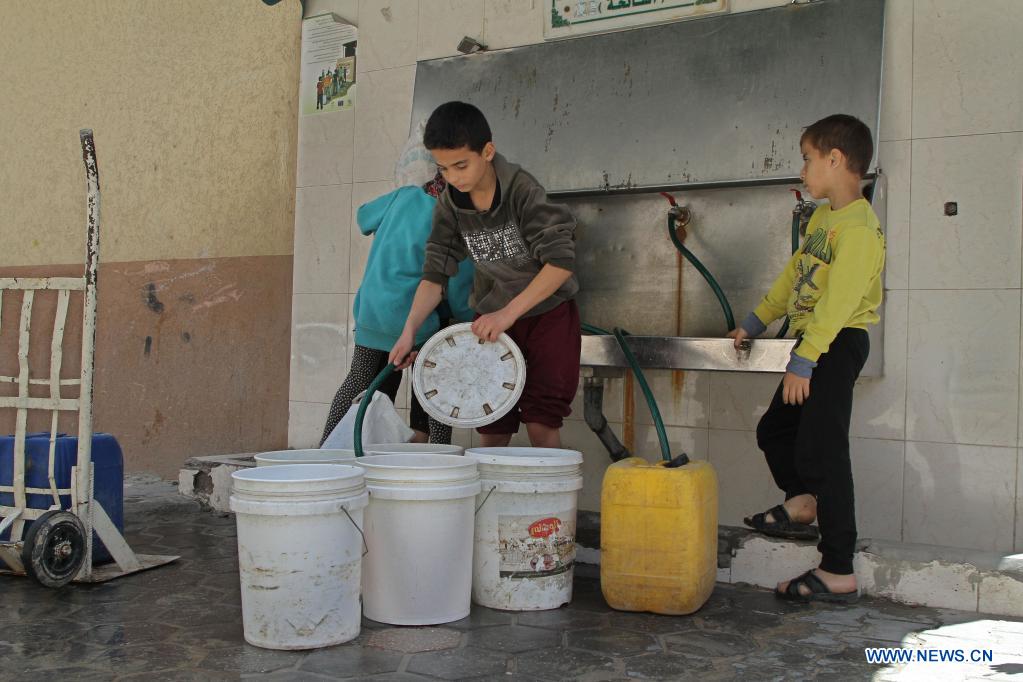by Sanaa Kamal
GAZA, Apr 27 (NNN-XINHUA) – Buthaina Abu Ghaben, a resident of Al Shati refugee camp, in the west of Gaza City, doubled her daily expenses for fresh water, especially during the month of Ramadan.
Ramadan is associated with special rituals for Muslims and it is also the month when they prepare many dishes and drinks, which increase water consumption. And this is the reason why the 44-year-old mother of seven has to spend 10 U.S. dollars for 500 litres of water a week.
“These expenses put a real burden on my family, which relies on a monthly salary of about 250 dollars, of which 20 percent goes to expenses of water and electricity,” the woman complained.
The woman relies on tap water for the rest of her daily housework, including showering, washing clothes and utensils, as well as, cleaning the house. But the problem is that tap water arrives three days a week, so she has to store water in large pots.
And the low quality of tap water also leads to health repercussions. It causes skin diseases and hair damage, not to mention the fact that her utensils are corroded.
“If I use desalinated water for housework, I have to spend double of what I earn a day, and this means we will all die of starvation,” the Palestinian woman said, as she finished cooking for iftar, a traditional meal that breaks the fast.
This crisis distresses most of the families, who live below the poverty line in the coastal enclave and suffer from difficult economic conditions due to the 14-year Israeli blockade.
Many families in similar conditions rely on charity organisations that set up water stations, to distribute this daily basic that has become a commodity in Gaza.
One of such stations is opened in front of the mosque at Al Shati camp and it is where dozens of local children gather to fill their buckets and pots with water.
Amjad Al-Mashharawi is one of them. He arrives at the station early in the morning, to make sure his family of 10 members has enough water.
“This is free water that we are allowed to use without paying money, because we are poor and cannot buy desalinated water,” the 16-year-old boy told Xinhua, as he finished filling up his gallons.
The Hamas-run Water Authority accuses Israel of being responsible for worsening the water crisis, after it imposed a strict siege on the strip in 2007. In an effort to provide safe water to Gazans, local authorities and private organisations established desalination plants across Gaza.
However, these facilities can ease the crisis, but cannot solve it.
There are about 220 private desalination plants in the strip, 70 percent of which are unlicensed and unattended and offer products below the required quality, according to Ahmed Helles, an environmental expert.
“About two million people have to choose either the water unsuitable for human use or the desalinated but expensive water,” he said.– NNN-XINHUA




